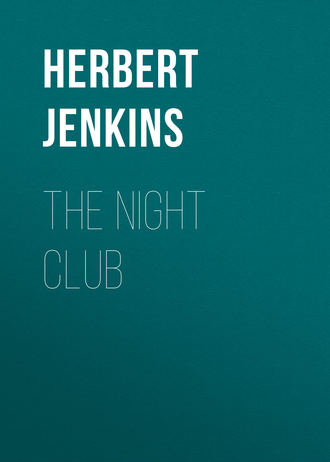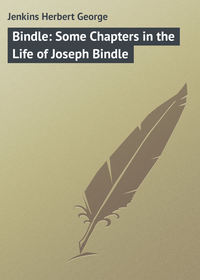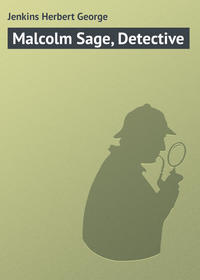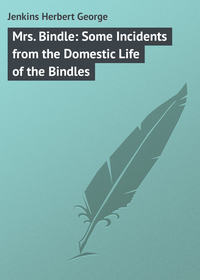 полная версия
полная версияThe Night Club
For hours the Boy stood brooding and polishing his nails. Then, just before "stand-to" he disappeared. His captain was the first to discover the fact, and enquiry was made along the whole line of trenches, but no one had seen the Boy for at least half an hour.
IIThe guns had opened their brazen throats in a frenzy of hate. Overhead shells whistled and hissed, lumbered and howled as they tore towards the enemy trenches, a hurricane of screaming hate. Gusts of shrapnel spat death from above, and rifle and machine-gun bullets buried themselves impotently in the sandbags amid little puffs of dust. Slowly dawn shivered into day – a day of greyness and of death.
In the assembly-trench the 8th Westshires were waiting. Heavy-eyed and silent they gazed towards the enemy lines, hidden by a curtain of dense yellow smoke. Against the parapet scaling ladders were placed ready. At a word, a short snapping sound barked along the trench, the ladders suddenly became alive, as men scrambled up and passed over the top, or fell backward with a dull thud.
"No rushing, a steady advance in open order," had been the Colonel's last words to his officers.
The 8th Westshires formed up and, as steady as on parade, advanced. They had not proceeded more than thirty yards when with a sigh a breeze swept past them and carried the yellow gas beyond the first enemy trench, like a curtain of fairy gauze.
Machine-guns and rifles poured a merciless fire into the Westshires. Everywhere men were dropping, silently or with little coughs of surprise. They advanced a further twenty yards and then faltered. With a shout the Colonel dashed on waving his stock. The moment of uncertainty seemed to pass, when suddenly the Colonel dropped.
"My God!" muttered the Senior Major, as he saw the indecision pass like a wave along the line; he also noticed several men had turned and were stealing back to the trenches they had just left. "They'll – they'll – " and there was a sob in his voice.
Just at the moment when retreat seemed inevitable, a figure rose from a small shell-crater, and with a yell that no one heard waved on the Westshires.
"It's the Boy," gasped an officer. "Where the hell – "
"It's the bloomin' Kid. Well I'm damned!" roared the colour sergeant. "'Ere, come on, or they'll nab 'im."
This was enough for the Westshires. Capture the Kid? Not if they knew it. With a howl they raced for the enemy trench, overtaking the Boy two yards from the sand-bags. The men's blood was up. They tumbled into the first trench, and with a sickening "sog sog" their bayonets got to work. Little coughs and grunts told of men doubled up. Everywhere cries of "Kamerad" were heard.
"It's no use yellin', sonny," one man was heard to say. "You've got to 'ave it – you've go to 'ave it!" and he drove his bayonet into a German's massive loins.
The Boy had come through untouched. Like a moth he flitted about from place to place, and wherever he was, there the fighting would be at its fiercest. Not only had the second line of trenches been taken in accordance with instructions, but the Westshires had crushed all resistance in the first, which they should have left to a following battalion. The work done, the Boy called two stretcher-bearers, and went back in search of the Colonel.
IIIThat night the Colonel sat in a German dugout, with a heavily bandaged leg. He had refused to go to the rear. He must first see the Boy.
When he entered, the Boy saluted and stood as if waiting for something that he knew would happen, but in which he was not particularly interested.
"What have you to say?" the Colonel enquired with unsmiling eyes. In the 8th Westshires officers and men alike dreaded the absence of that smile which seemed so much a part of the Colonel's eyes.
The Boy hung his head. "I'm sorry, sir," he said, in a low, husky voice.
"You remember my orders?"
"Yes, sir."
"Yet you absented yourself without leave."
"It was – " the Boy stopped; his voice seemed suddenly to forsake him. Then after a moment's pause the words came in a rush.
"It was the old dad, sir. I've never let him know I'm such a rotter. If he knew I was sent to rear before the charge it would have crocked him. He – he – thinks no end of me."
The Boy stopped again and looked at the Colonel. "I crept out this morning, and lay in a small crater near our trench until the advance. I was going to join up and I thought I should get killed. He would sooner have me dead than not there. I'm sorry, sir – I'm – " The Boy's voice trailed off into a sob.
"You know what you did to-day?" enquired the Colonel. The smile was back in his eyes, but the Boy did not see it.
"Deserted!" The word came out with a jerk.
"Yes, you deserted – that is, technically – but you saved the whole battalion from being cut up and – possibly disgraced."
The Boy looked at the C.O. in wonder. He blinked his eyes uncertainly.
"I – I don't – "
"Listen, Boy! You were sent out by my orders on listening-patrol, and told to join up with the Battalion when it advanced. You did so, do you understand?"
"But listening-patrols aren't sent out under bombardment, sir."
"Damn you, Boy, what the devil do you mean? Am I C.O. or you?" The Colonel wanted to laugh and simulated anger to preserve his authority.
"I'm sorry, sir; but – "
"Well, never mind about listening-patrol. I shall send an account of your services to the General that will get you the D.S.O., possibly the V.C. I will write to the – er – old dad myself." The Colonel's voice was husky.
"Now, get out, Boy, damn it – get out at once!"
And the Boy got out.
There was the vigour of conviction in Bindle's play with his mallet, and the hum of talk at the conclusion of the story made it obvious that the Boy had considerably enlarged the circle of his friends.
"He's a dear!" Sallie blinked her eyes vigorously. They were suspiciously moist.
"'Ere, 'ere, miss," agreed Bindle. As a matter of fact Bindle always agrees with anything that Sallie says.
"I say, Windover, couldn't you bring him round one night?" enquired Dick Little.
"I'll try," said Windover. "He's stationed at Wimbledon now."
"And did he get the V.C.?" enquired the practical-minded Angell Herald.
"No, the D.S.O.," replied Windover, "with promotion to a first lieutenancy."
"What a shame," said Sallie, and turning to Windover she said, "You will bring him, Winnie, won't you?" Sallie and Windover are old friends.
And that is how the Boy became a "Night-Clubber." He is a strange combination of impudence and innocence; but there is one way of bringing him to heel. It was quite by accident that I discovered it.
One evening he had been roasting poor Angell Herald rather badly, and although that astute person was sublimely unaware of what was taking place, both Dick Little and I thought things had gone far enough.
I happened to have with me the manuscript of the story of how the Boy got his D.S.O. Without a word I started reading from it in a loud voice. I had not got six lines down the page before he slowly dragged himself out of the armchair in which he was lounging, his face crimson, and, walking towards the door, remarked:
"You'll find me on the mat when you've done reading rot."
That is the Boy all over.
CHAPTER V
THE BARABBAS CLUB
I have some acquaintance with authors; but of all I have encountered Jocelyn Dare is in many ways the most remarkable. Careless, generous, passionate, he is never so happy as when narrating the enormities of publishers. His white, delicate fingers will move nervously, his long black locks fall over his alabaster forehead, and his black eyes flash as he describes the doings of these "parasites" and "pariahs," as he calls them.
He is a thoroughly good fellow in spite of this eccentricity, never withholding a helping hand from anyone. I believe he would succour even a publisher if he found one in need of help; but he can no more resist denouncing the fraternity than he can keep the flood of raven hair from falling over his eyes when he becomes excited.
Bindle likes him, and that is a testimonial. They have something in common, as Dare's heart, like Bindle's "various" veins, is a bar to his doing his bit, and Dare feels it as much as does Bindle.
"I like to listen to Mr. Gawd Blast 'ammerin' tacks into publishers," Bindle would remark appreciatively. "An' don't 'e know some words too!"
Dare's vocabulary is almost unique. He is a master of the English tongue. At rhetorical invective I have never heard his equal, and I have encountered a Thames lighterman in one of his inspired moments. Bindle would sit in mute admiration, watching Dare as he flung the mantle of obloquy over "that cancer polluting the face of God's fair earth."1
It was Dare who told us the story of the author who, unable to extract his royalties from a publisher, seized him by the beard and swore he would hang on until the money was forthcoming. "And that," he concluded, "is why not one publisher in a hundred wears a beard."
It was Dare, too, who told us of the author who went to a certain well-known publisher with a manuscript, saying, "My previous books have been published by – (and he mentioned the names of three honoured firms) – and they were rogues to a man, did me right and left, only I could never catch them, not even with the help of the Society of Authors. So I've brought my new book to you, Mr. Blank."
The publisher was delighted at the compliment and, smiling in his most winning manner, enquired, "And may I ask why you come to me, sir?"
He waited expectantly, his lips still bearing the after-glow of the smile.
"I come to you, Mr. Blank," the author replied impressively, "because you are an honest man."
And the publisher fainted.
Dare would laugh with the joyousness of a schoolboy when telling these yarns. But there is no malice in him. He is as mischievous as a puppy; but as soft-hearted as a woman.
There is something strangely lovable about Dare. Certain of his mannerisms are in themselves feminine; yet he is never effeminate. One of these mannerisms is what might be called the fugitive touch, which is with a woman a caress. He will lay his hand upon your coatsleeve just for a second, or put it across your shoulders, a slight brushing movement, which betokens comradeship.
He adores children. I have seen him, when exquisitely turned out in top hat and morning coat, pick up a howling youngster that had come a cropper, brush it down, stay its cries and stop its tears, and send it home wreathed in rainbow smiles, clutching a generous-sized bag of sweets. Such is Jocelyn Dare.
When the time came for a story, he told that of the Barabbas Club. For some time I hesitated to write it up for the Night Club. I regarded it as too limited in its appeal. At last, however, I decided to let the Club judge for itself. Dare took great interest in the writing of the story, and himself read and corrected the typescript.
I"My dear fellow," said Jocelyn Dare, "the Seven-headed Beast of the Apocalypse is nothing to it. It's absolutely unique."
With the air of a man who has completed a life's work, Dare tapped some sheets of manuscript that lay upon the table, selected a cigarette from the box with a care and deliberation usually bestowed upon cigars, and proceeded: "You are a doctor, whose mission in life is to purge and purify the human body; I am a novelist whose purpose it is to perform the same office for the human soul."
From the depths of a particularly comfortable easy-chair, Dick Little looked up good-humouredly at his friend.
"You're a queer devil, Dare. One of these days you'll get a shock – poseurs always do."
Dare laughed easily, and Dick Little continued. "But what have publishers to do with the human soul? That's what puzzles me."
"There is only one thing, my poor Little," replied Dare, looking down at the other with a smile of pity, "that makes friendship between you and me at all possible."
"And that is?"
"Your incomparable understanding of my corpus, which you persist in calling my liver. I give you all credit for this. You know my constitution to a nicety, and in a way you are responsible for my novels."
"Good God!" ejaculated Dick Little, sitting up in his chair with an expression of alarm upon his features. "I hope not."
"Listen!" said Dare. "A publisher is an obstacle to intellectual progress. He is a parasite, battening upon the flower of genius. That is why we founded the Barabbas Club. It frankly encourages authors to quarrel with their publishers. No one is eligible for membership who cannot prove conclusively to the Committee that he has been extremely rude to at least one publisher. I myself have been grossly insulting to seventeen different publishers, on several occasions before their own clerks. I have taken three into Court – I confess I lost each case – and I horsewhipped him who published The Greater Purity because he failed to advertise it sufficiently."
"And what happened?" queried Dick Little, who had heard the story a score of times.
"I was summonsed for assault. The magistrate was a creature entirely devoid of literary perception. He fined me five guineas, plus five guineas damages, and two guineas costs. But wait! Now here comes the shameful part of the story. Later I discovered that I had been wrong about the advertising. I wrote to that worm, that foul weed who is poisoning the slopes of Parnassus, apologising for whipping him, and will you believe it, he absolutely refused to return the five guineas damages?"
Dick Little laughed. He always laughed to see Dare upon his hobby-horse.
"The result of that case was an addition to the rules of the Barabbas Club, by which it was provided that, whenever an author horsewhipped a publisher, with or without justification, the president of the club should resign, and his place be automatically filled by the horsewhipper."
Dick Little rose from his chair, stretched himself lazily, lighted another cigarette and prepared to take his departure.
"One moment, my dear fellow," remarked Dare, "I must tell you something about this, The Damning of a Soul." He tapped the manuscript upon the table. "It gives a picture of a publisher, so vivid, so horrible, so convincing, that I shudder when I think that anything so vile can be permitted to exist by our most gracious sovereign lady, Nature. It tells of the gradual intellectual murder of a great genius through lack of proper advertising by his publisher. 'It is a masterly picture of the effect of advertising matter upon imaginative mind.' I quote the words of our President. It will create a sensation."
"But what about libel?" enquired Dick Little, whose more cautious nature saw in this same masterpiece a considerable danger to its author.
"There is my master-stroke. My Beast, which transcends that of the Apocalypse in horror-compelling reality, is, as was that, a composite creature. I have drawn upon the whole of the seventeen publishers with whom I have had differences. One supplies 'a nervous, deceitful cough,' another 'an overbearing manner,' a third 'a peculiar habit of crossing and recrossing his legs,' a fourth 'a swindling propensity when the day of reckoning arrives,' a fifth 'a thoroughly unclean and lascivious life,' a sixth 'a filthy habit of spitting into the fireplace from every conceivable angle of his room,' a seventh – "
"Enough! I must be off," laughed Dick Little. "I suppose it's all right; but one of these days you'll get yourself into a bit of a mess. There may be the devil to pay over this even."
Dare smiled indulgently as he shook hands.
"Good-bye, my Æsculapius," he said. "If there's trouble, I have behind me the whole of the members of the Barabbas Club, representing eight hundred and thirteen volumes, and the brains of the country. Good-bye." There was a note of weariness about Dare's voice. Materialism was exceedingly tedious.
"Well, it's his affair, not mine," muttered Dick Little to himself as he descended the stairs of Dare's flat; "but they don't fight with books in the King's Bench Division."
IIThree weeks later, on returning from a fortnight's holiday in Scotland, Dick Little found awaiting him at his chambers the following note from Dare: —
"Come round at once. There is not the Devil, but the publishers to pay. Bring a hypodermic syringe and a pint of morphia. – "J.D."
Dick Little had been out of the world, and he had forgotten all about The Damning of a Soul and his own misgivings. Having seen a few of his more important patients, he walked round to his friend's flat and found Dare in a pathetic state of gloom.
"Have you brought the hypodermic syringe and the morphia?" he asked without troubling to greet his visitor.
"What! Tired of life?" questioned Dick Little smiling.
"I am tired of a civilization that is rotten, and which makes injustice possible."
"What has happened?"
"I published The Damning of a Soul in The Cormorant, and arranged with the editor for a copy to be sent to every publisher in the country. Ye gods!" and Dare laughed mirthlessly.
"And what happened!" asked Dick Little.
"Twenty-five writs for libel up to date," groaned Dare, "and God knows how many more to come."
Dick Little laughed loud and long.
"How many publishers went to the making of your Beast of Parnassus?" he asked.
"Only seventeen; that's the peculiarly damnable part of it.
"And what do they say at The Cormorant?"
"Well, I've kept away from the offices, where all the writs have been served by the way, and I've written a formal protest to the Postmaster-General against the use of the telephone for language that is entirely unfit for even the smoking-room of a woman's club. Now they write; but as I don't read the letters, it doesn't matter so much."
"The editor is in a passion, I suppose?"
"No; he's in a nursing-home. He's a master of diplomacy," replied Dare wearily. "I'd do the same, only I can't afford the fees. It's the general-manager who telephones. I'm going to put him in my next novel, curse him!"
"In addition to a writ," Dare proceeded, "each publisher has written me a letter, 'without prejudice' and with considerable heat."
"What about?" enquired Dick Little, thoroughly interested in the curious situation that had arisen out of Dare's unfortunate story.
"The man who crosses and recrosses his legs says that he is the only publisher in the world with that characteristic, and that I accuse him of unclean morals, as if a publisher had any morals, clean or otherwise. He of the nervous cough objects to the adjective 'deceitful,' and is having his books examined by an accountant He who salivates into the fireplace from impossible angles, is producing the testimony of three specialists to prove that he has chronic bronchitis, and that it is neither infectious nor contagious, and so on." Dare's voice trailed off drearily.
"And what do you propose to do?" questioned Dick Little.
"Do?" enquired the other, listlessly throwing himself into a chair and lighting a cigarette. "Do? Why, nothing. That's why I want the morphia. I'm the imperfect, not the present tense. I'm done."
"How about the Barabbas Club?" asked Dick Little.
"Dissolved."
Dick Little whistled.
"Dissolved," continued Dare, "because its work is accomplished, vide the Presidential valediction. I don't see how; but it's too tedious to bother about."
Dick Little went to the sideboard and poured out some water into a glass, then emptying into it the contents of a small phial that he took from his pocket, returned to where Dare sat and bade him drink.
"What is it – a death potion?" enquired Dare lazily as he swallowed the dose.
"Wait and see!" replied the other.
For a quarter of an hour they smoked in silence. Suddenly Dare bounded into the air, and rushed to the telephone.
"Piccadilly 1320, quickly," he shouted. Then a minute later, "That The Cormorant? I want the general-manager. Yes; it's me. Oh, shut up! I've got a plan. Coming round. Three more writs? Wish it were thirty. We'll do 'em yet – 'bye."
Snatching up his hat and entirely oblivious of his friend's presence, Dare rushed out of the room; and a moment later the bang of the front door told that he had left the flat.
"Never saw strychnine act so before," muttered Dick Little as he picked up his hat and gloves and prepared to go.
IIITen days later as Dick Little sat in the consulting-room of his surgery, waiting for seven o'clock to strike that the first patient might be admitted, Jocelyn Dare burst through the door followed by the protesting parlour-maid.
"Sorry, old man; but I had to tell you. We've won. It's a triumph for Letters, and all due to your science and my brain. As I said before, your understanding of my corpus is incomparable."
"It's five minutes to seven," remarked Dick Little evenly, "and the first patient enters at seven."
"Of course. Well, three minutes will suffice. I found a scapegoat."
"A what?"
"A scapegoat. You see if I could prove that my publisher was some particular person, we should have only one action to defend; but if that publisher were dead, and we could square his relatives, then we were safe.
"I set about discovering a dead publisher, and you would be astonished to find how rare they are. They seem to be immortal, like their asinine brothers. At last I lighted upon Sylvester Mylton, who died a bankrupt nearly a year ago. By great good luck I ran his wife to earth. She was in terrible straits, almost starving, poor woman."
"But what – "
"Wait a moment. I showed her the article, and told her that I felt that I had done a dishonourable thing in writing about the dead as I had done, and would she accept five pounds as compensation. Heavens! I don't think the money pleased her so much as the knowledge that the iniquitous Mylton had been pilloried. He had made her life a curse."
"So far so good. I had to remind her of a few of his characteristics; but she's a shrewd woman, and hunger you know. Now read this." Dare held out a copy of the current issue of The Cormorant, pointing to a page bordered by the portraits of thirty publishers. Within the pictorial frame appeared the following: —
THIRTY WRITS FOR LIBELAN EXTRAORDINARY OCCURRENCEA SENSITIVE PROFESSION"Three weeks ago we published a story from the brilliant pen of Mr. Jocelyn Dare entitled The Damning of a Soul, in which was given a vivid picture of an unscrupulous, immoral, gross, and dishonest publisher – a man capable of any vileness, who had by under-advertising the work of a promising young author, damned him for ever. Soon after the appearance of our issue containing Mr. Dare's contribution, writs began to rain in upon us until there was scarcely a publisher in London who had not instructed his solicitors to proceed against us for criminal libel, as, in our picture of the unscrupulous publisher, he thought he saw himself depicted.
"Although we fully recognise the obligations of the living towards the dead, we are, in self-defence, forced to publish a letter that we have received from the wife of the late Sylvester Mylton, the well-known publisher, who died some months ago. It runs: —
"'DEAR SIR,
"'I have read with deep pain and regret the story in your issue of the 2nd inst., entitled The Damning of a Soul. In the character of the publisher I recognise my late husband. None can mistake 'the overbearing manner,' 'that peculiar habit of crossing and recrossing his legs,' 'the nervous, deceitful cough,' 'the habit of spitting into the fireplace from every conceivable angle of his room,' although I must add that his accuracy was astonishing. With regard to the other points, I can only say that of recent years I declined to live with him because of the creatures with whom he associated – I do not refer to his authors. I regret that you should have brought him so prominently before the public, and I hope you will send me ten or a dozen copies of your issue containing the story.
"'I am,
"'Yours sincerely,
"'ARABELLA MYLTON.'
"We can only express regret that so many publishers should have thought our story referred to them. We thought that Mr. Dare had painted so vile and heartless a wretch as to prevent any self-respecting publisher from seeing in such a creature any resemblance to himself. Apparently not. Surely Mecænas is the most sensitive of beings. We may add that we shall defend each of the actions threatened. We embellish this page with portraits of the publishers who have caused us be served with writs."







